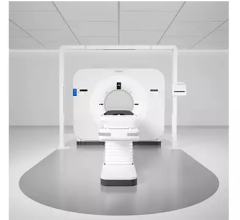
December 19, 2017 — Humanetics Corp. presented data at the annual meetings of the American Society for Radiation Oncology (ASTRO) and the Radiation Research Society (RRS), on the company’s new drug candidate, BIO 300, which is being evaluated as a potential treatment to prevent erectile dysfunction in patients undergoing radiotherapy for prostate cancer. The annual ASTRO meeting was held Sept. 24-27 in San Diego, and the annual RRS meeting was held Oct. 15-18 in Cancun, Mexico; Zeljko Vujaskovic, M.D., Ph.D., a professor of radiation oncology at the University of Maryland School of Medicine (UMSOM) and director of the school’s Division of Translational Radiation Sciences, and Michael Kaytor, Ph.D., vice president of research and development at Humanetics, presented data at the respective meetings.
Prostate cancer is the most common non-skin cancer affecting men in the U.S. According to the National Cancer Institute (NCI), nearly 162,000 men will be diagnosed with prostate cancer in the U.S. in 2017, representing approximately 20 percent of all new cancers in men. While survival rates are high, radiation-induced erectile dysfunction (ED) is a common and lingering side effect associated with prostate radiotherapy. Nearly half of all men undergoing radiation treatment for prostate cancer will experience some level of ED.
Data presented included the results of nonclinical studies that were conducted at UMSOM. These studies demonstrated the potential of BIO 300 to both mitigate radiation-induced ED and also to improve the effectiveness of radiation therapy to kill tumors. “These compelling results show the promise of BIO 300 to enhance a prostate cancer patient’s quality of life, while also directly impacting the ability of radiation therapy to kill the tumor,” said Vujaskovic. “If this result can be translated to the clinical treatment of prostate cancer, it would represent a breakthrough in prostate cancer treatment outcomes.”
At present, there are no U.S. Food and Drug Administration (FDA)-approved drugs to mitigate radiation-induced ED. “BIO 300’s potential to enhance radiation’s killing effect on the tumor while reducing treatment-related side effects is unparalleled,” said Kaytor. “These findings support the advancement of BIO 300 into a human efficacy study, which is anticipated to begin in 2018.”
BIO 300 is in development for prevention and mitigation of toxicities associated with radiation exposure for the treatment of multiple cancers and is currently in a Phase Ib/IIa clinical trial in patients with non-small cell lung cancer who are receiving chemoradiotherapy.
For more information: www.humaneticscorp.com


 April 21, 2025
April 21, 2025 








